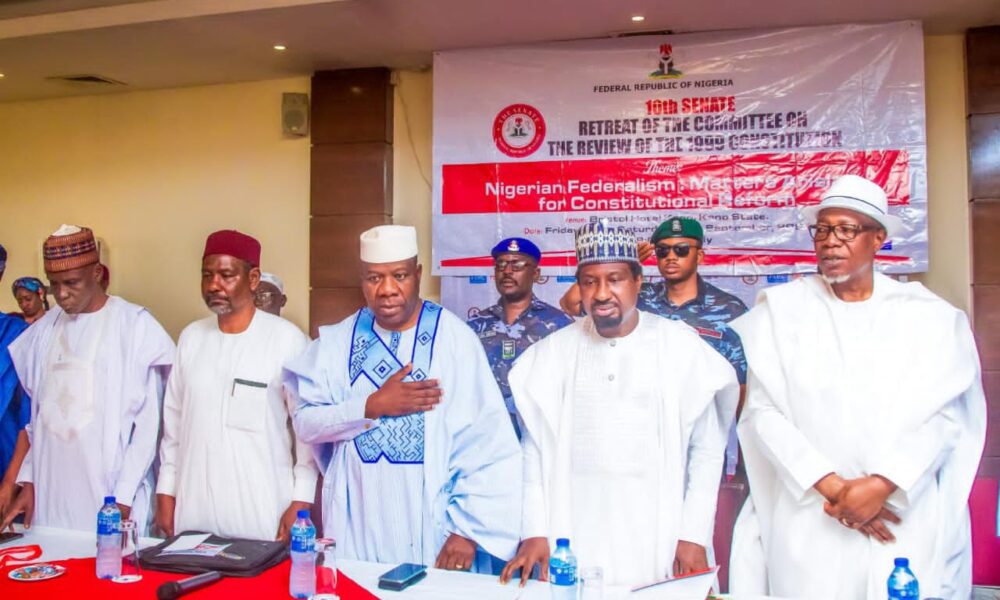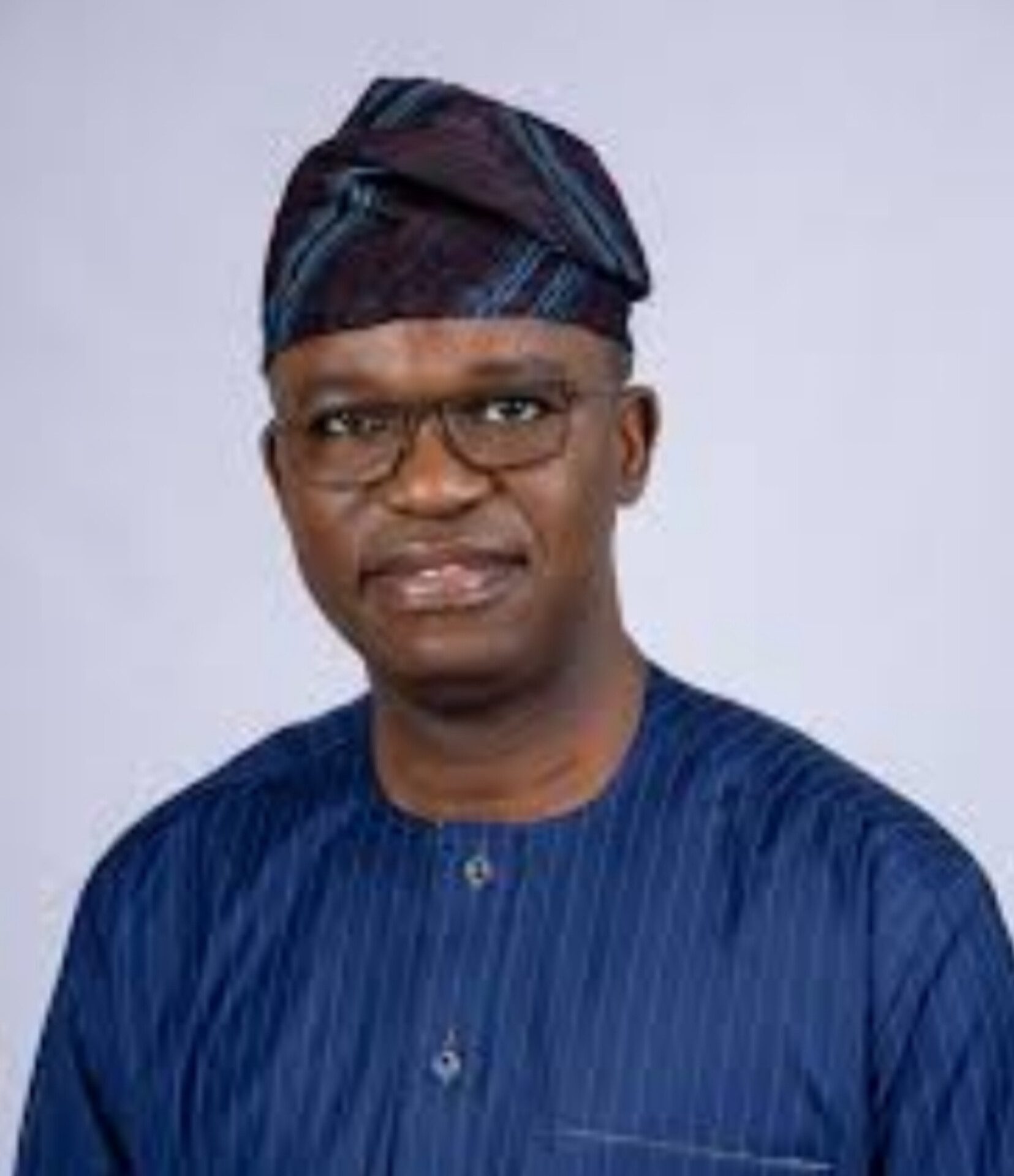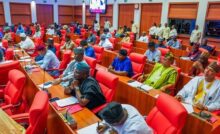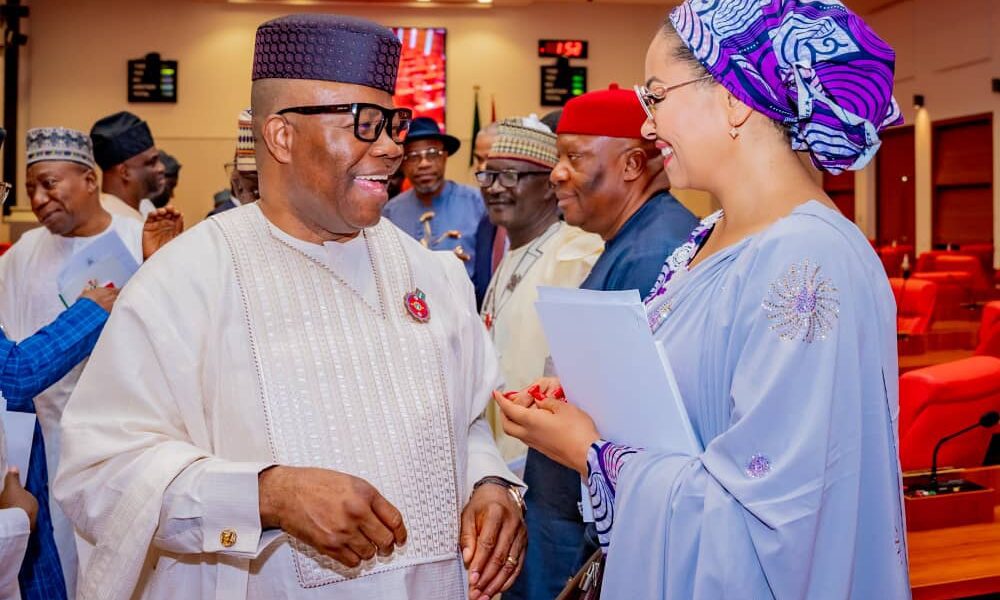**State Police, Women’s Rights also
The Senate Adhoc Committee on Constitution Review began a two-day retreat in Kano on Friday, announcing plans to produce a draft bill by December 2025.
Key discussions at the event, jointly organized with the Policy and Legal Advocacy Centre (PLAC), focused on Local Government (LG) autonomy, state police, and the role of traditional rulers, particularly in addressing security challenges.
Speakers emphasized the need for joint engagements between the National Assembly, state governors, state assemblies, the judiciary, civil society organizations, and other stakeholders to ensure that proposed amendments do not face rejection at the state level.

In his opening remarks, Deputy Senate President and Chairman of the Senate Committee on Constitution Review, Senator Jibrin Barau, expressed confidence that the ongoing review would reflect the wishes of Nigerians. He stressed that the constitution review must be guided by values of freedom, equality, and justice.
Barau called for synergy between the Senate and House of Representatives committees, as well as collaboration with key stakeholders like the executive, governors, and civil society, to ensure a comprehensive and successful review process.
*”Our decisions will have far-reaching implications for generations to come,”* Barau stated, urging lawmakers to approach the task with care. He described the retreat as an opportunity for constructive dialogue and collective problem-solving.
Deputy Speaker of the House of Representatives, Rt. Hon. Benjamin Kalu, represented by House Leader Julius Ihonvbere, echoed the call for synergy between both legislative chambers. He highlighted the importance of aligning with stakeholders such as traditional rulers and faith-based leaders to achieve successful reforms.
Kalu also urged for early transmission of resolutions to the states, adding that the collaboration between the Senate and the House would help conclude the constitution review before the commencement of political campaigns leading up to the 2027 elections.
The Chairman of the Conference of State Houses of Assembly Speakers, Adebo Edward Ogundoyin, praised the early start of the review process, contrasting it with the delays during the 9th Assembly. Ogundoyin, who also serves as Speaker of the Oyo State House of Assembly, assured that state assemblies are prepared to review transmitted proposals promptly.
Former Senate President Ahmad Lawan commended the current Assembly for its efforts and urged lawmakers to pay attention to issues of women’s rights and the constitutional role of traditional rulers. Lawan expressed optimism that the 10th National Assembly would meet the constitutional review targets set by Nigerians.
He called for legislative action to implement the Supreme Court’s judgment on LG autonomy and urged his colleagues to restore local governments’ functionality, emphasizing their importance in governance and development.
The retreat is aimed at paving the way for significant reforms, focusing on tackling insecurity, strengthening local governance, and addressing gender issues in the constitution. Lawmakers are expected to continue engagements with key stakeholders to finalize the review process.




